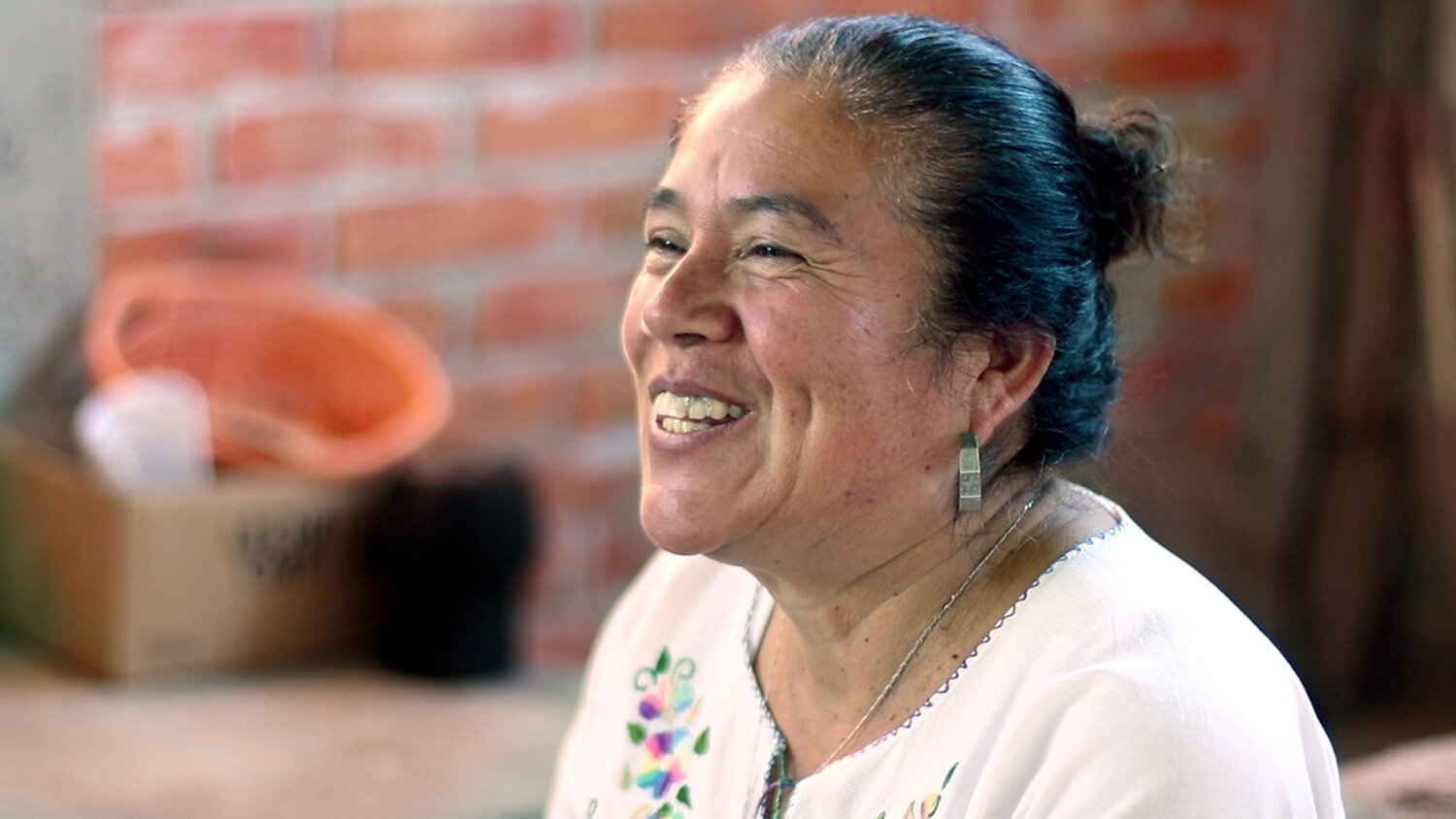Improving Community Health through Rainwater Harvesting
Photo: Carmen Castro Mata, leader of SECOPA, a long-time collaborator of Caminos de Agua.
“The water we drink has [high levels of] fluoride, and we see the impacts in so many people through dental and skeletal fluorosis... For me, some of my teeth have fallen out, and it’s happening to many people in different communities. This affects our health and our self-esteem... [So] what we do is inform people and communities about this problem...and one immediate solution is rainwater harvesting...”
– Carmen Castro Mata, Community Leader, Servicios Comunitarios Pozo Ademado
At Caminos de Agua, our achievements are never accomplished alone. We rely heavily on partner organizations, community leaders, and so many more actors, to expand access to safe, clean drinking water. For years, we have worked closely with Carmen Castro Mata and her organization, Pozo Ademado Community Services (or SECOPA, its acronym in Spanish). Together, we have monitored water quality in dozens of communities, participated in coalitions, helped build a human rights case, and installed dozens of rainwater harvesting systems and water filters – impacting the public health of thousands in our region. Carmen and SECOPA are true pioneers in rainwater harvesting implementation across our watershed, and we are grateful to partner closely with them.
All this month we will be illustrating the importance of rainwater harvesting in our region through the lens of those living the health, economic, and structural impacts of our water crisis. The rainy season is short, only 8 weeks long, and we must take advantage of it to build as many systems as possible! Help support this initiative today by clicking on the link below and making a donation today!
SECOPA: Working Together with Communities at Risk
Photo: A group of community members at SECOPA, in Pozo Ademado, San Diego de la Union.
Driving through a backroad in the municipality of San Diego de la Unión in northern Guanajuato, you will travel through massive agricultural production sites ending in the community of Pozo Ademado – home to 300 families and SECOPA, one of our most important collaborators. While water is fundamental to the sustenance of human life, as Carmen states “here in our community, we only receive water once a week.” The little water they do receive also happens to be contaminated with fluoride at more than double the World Health Organization limit.
SECOPA was born out of the need for a place where critically underserved people can receive health advice, preventative treatments, and other therapies. Over the years, SECOPA has become a referential organization in the region, focusing on promoting alternative medicine, nutrition, environmental preservation, and rainwater harvesting to help mitigate the health impacts of the excessive fluoride levels found in their limited water supply. As Carmen states,
“Many people were in disbelief, they approached us without knowing what to do, that’s when we decided to pursue rainwater harvesting as the main solution for people’s [health] problems.”
Rainwater Harvesting has become an effective way to help people in San Diego de la Union, Dolores Hidalgo, and the many rural and urban communities of northern Guanajuato, mitigate the impacts of arsenic and fluoride in their water. Over the years, Carmen has seen how rainwater has positively impacted public health in the communities where she works and just how important this resource has become:
“The majority of the people benefiting from rainwater harvesting come to see water through different eyes. They’ve learned that water coming from wells can run out or is contaminated and rainwater thus becomes really important for them.”
From One Community to Dozens More: You Can Make an Impact!
Photo: A community member painting a rainwater cistern with a natural paint mixture.
The water problems in Pozo Ademado are a microcosm example of the greater water crisis happening in hundreds of communities throughout our watershed. Right now, we are working closely with Carmen and SECOPA to build dozens of rainwater harvesting systems in 8 different communities, and we are also working with other groups to build many dozens more throughout the greater watershed region.
After decades of extreme exploitation by the agro-exporting industry, the Upper Río Laja Aquifer – the main water source for San Miguel and much of northern Guanajuato – is declining at an alarming rate of 2-3 meters (~6-10 feet) per year, requiring wells to be drilled ever deeper in order to extract this vital resource. Unfortunately, the deeper we go, the more the water is contaminated with arsenic and fluoride, two naturally occurring chemicals that, when consumed over long periods of time, can be extremely harmful to human health. This is causing grave health impacts on people such as crippling dental and skeletal fluorosis, skin lesions, chronic kidney disease, cognitive and learning impairments in children, and several types of cancers. This is happening in literally hundreds of communities throughout the region, impacting 10s of thousands in our watershed.
Rainwater avoids these contaminants by foregoing the use of groundwater altogether. That’s why, during the rainy season, we ramp up our efforts to collect, store, and treat as much rainwater as possible. Currently, we are working with several grassroots partner organizations, like SECOPA, in 14 different communities with a goal of building 150 rainwater harvesting systems this year – the most ambitious construction effort in our history.
Please consider supporting this effort by donating today.




